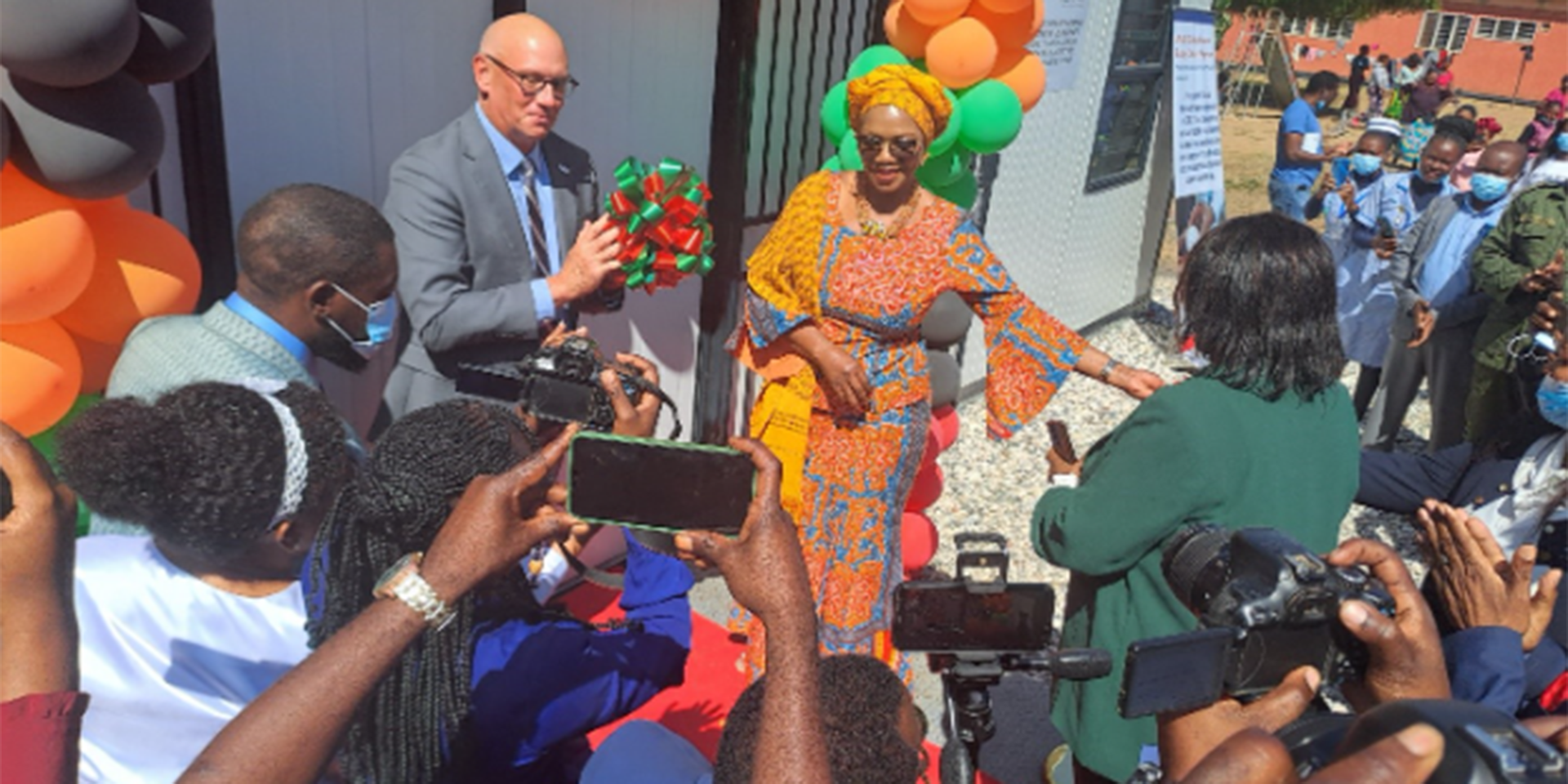
In 2023, Zambia implemented a 12-hour load-shedding schedule due to low water levels in the Kariba Dam, the country’s primary source of hydroelectric power. Rising temperatures and reduced annual rainfall have significantly impacted Zambia’s energy supply as the country relies heavily on hydroelectricity.
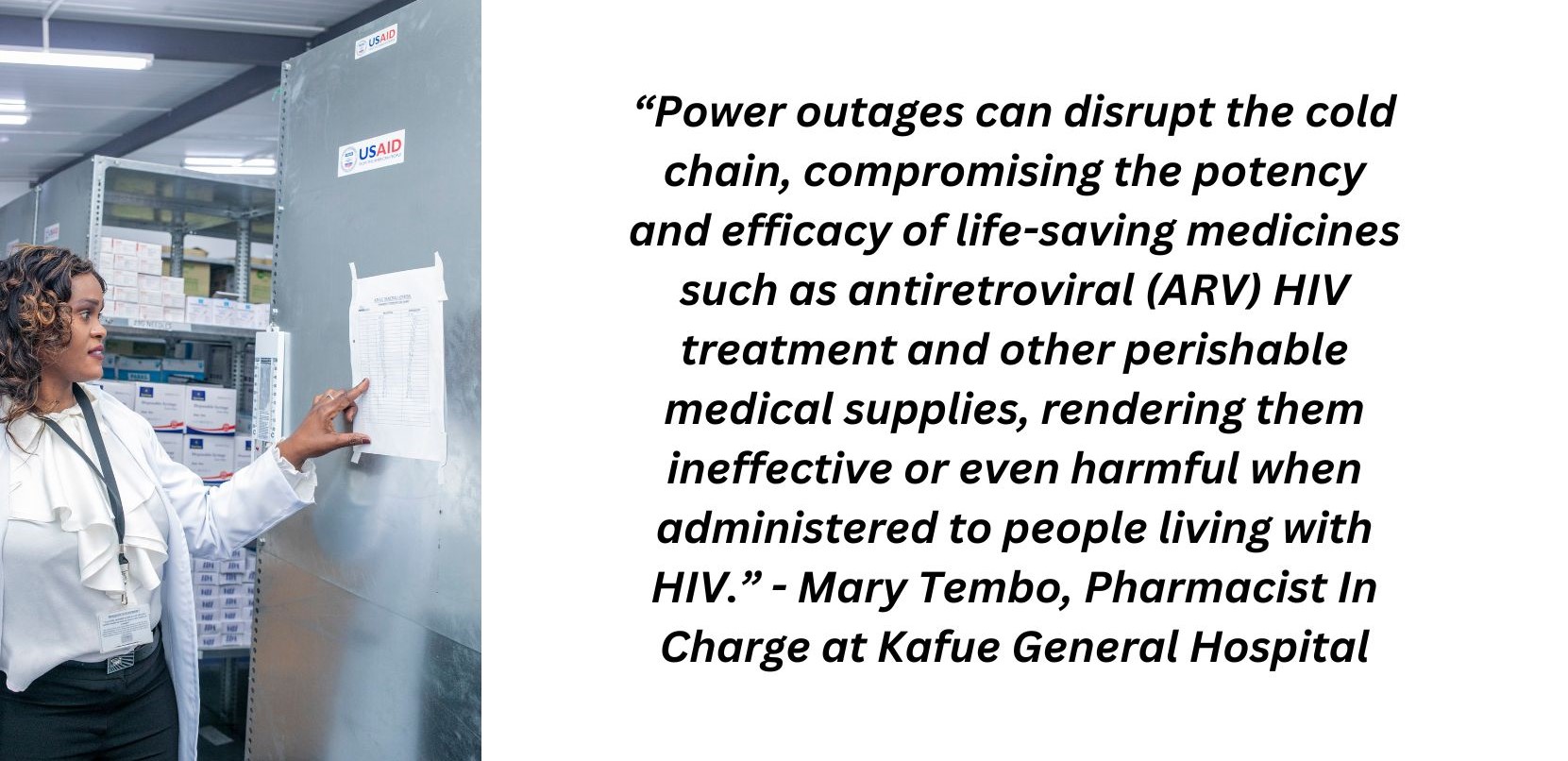
Power outages can disrupt the cold chain, compromising the potency and efficacy of life-saving medicine such as antiretroviral (ARV) HIV treatment and other perishable medical supplies, rendering them ineffective or even harmful when administered to people living with HIV. This jeopardizes public health efforts and increases the risk of disease outbreaks. Ensuring a dependable energy supply and maintaining the integrity of the health supply cold chain is crucial for safeguarding health supplies and protecting communities.
“Climate change poses a huge challenge to the preservation of essential health commodities, particularly in rural areas. The escalating temperatures associated with climate change create a hostile environment for storage, compromising the shelf life of vital medical supplies.” - Ketty Sichalwe, Principal Insecticide Treated Nets Officer, Ministry of Health
In response to the urgent need for action, USAID and the Ministry of Health are collaborating to maintain the integrity of the health supply cold chain, ensuring that healthcare interventions are reliable and that patients receive high-quality care. Strengthening the supply chain ensures lifelong continuity of HIV treatment to achieve viral load suppression and optimal health outcomes for all clients.
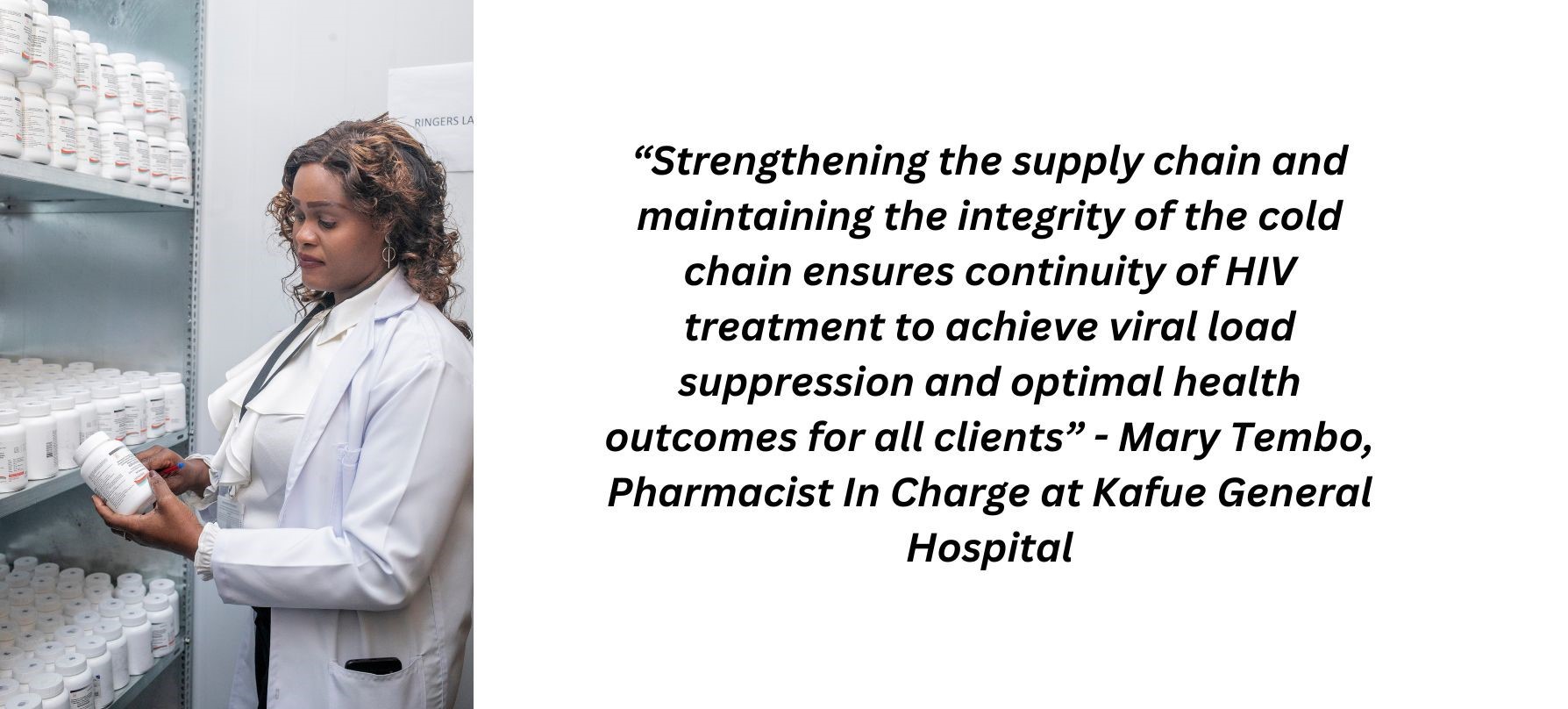
The USAID Global Health Supply Chain Program–Procurement Supply Management (GHSC-PSM) project supported the Zambia Medicines & Medical Supplies Agency (ZAMMSA) to install solar solutions to introduce energy stability and cost savings, both at the provincial hubs and at smaller rural clinics.
The Luanshya ZAMMSA Hub was one of the locations chosen to implement sustainable improvements, and the storage facility is now exclusively powered by solar energy. GHSC-PSM supported the installation of a solar system with 80 kWp which was completed in March 2022.
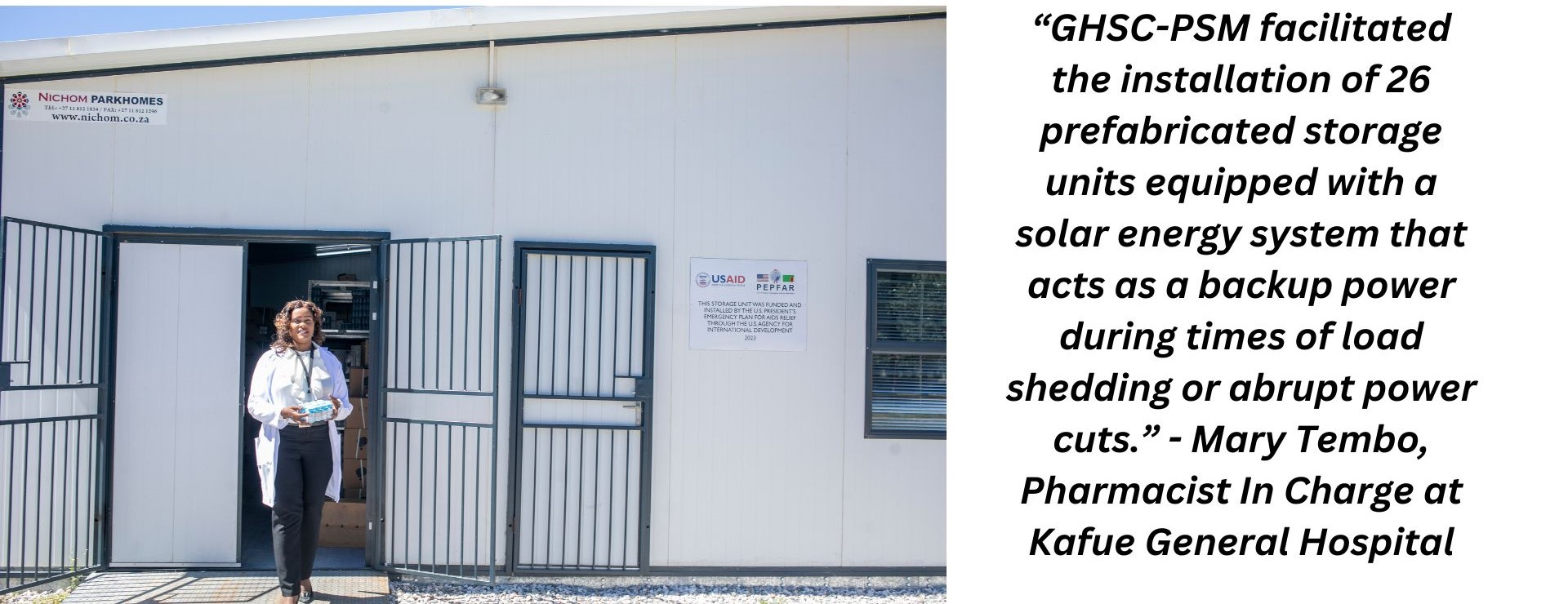
Simultaneously, GHSC-PSM extended its commitment to reaching underserved populations and ensuring the efficient distribution of health commodities. The project facilitated the installation of 26 prefabricated storage units in selected districts across the country. Ten of the units were installed in 2018 and the remaining 16 were installed between October 2022 and October 2023.
These storage units, valued at $2.1 million are equipped with a solar energy system that acts as backup power during times of load shedding or abrupt power cuts. When batteries are fully charged, the system provides up to four to five hours of continuous power supply. With consistent maintenance, the system panels and inverters have a life span of 25 to 30 years, while the batteries have an estimated life span of 10 years.
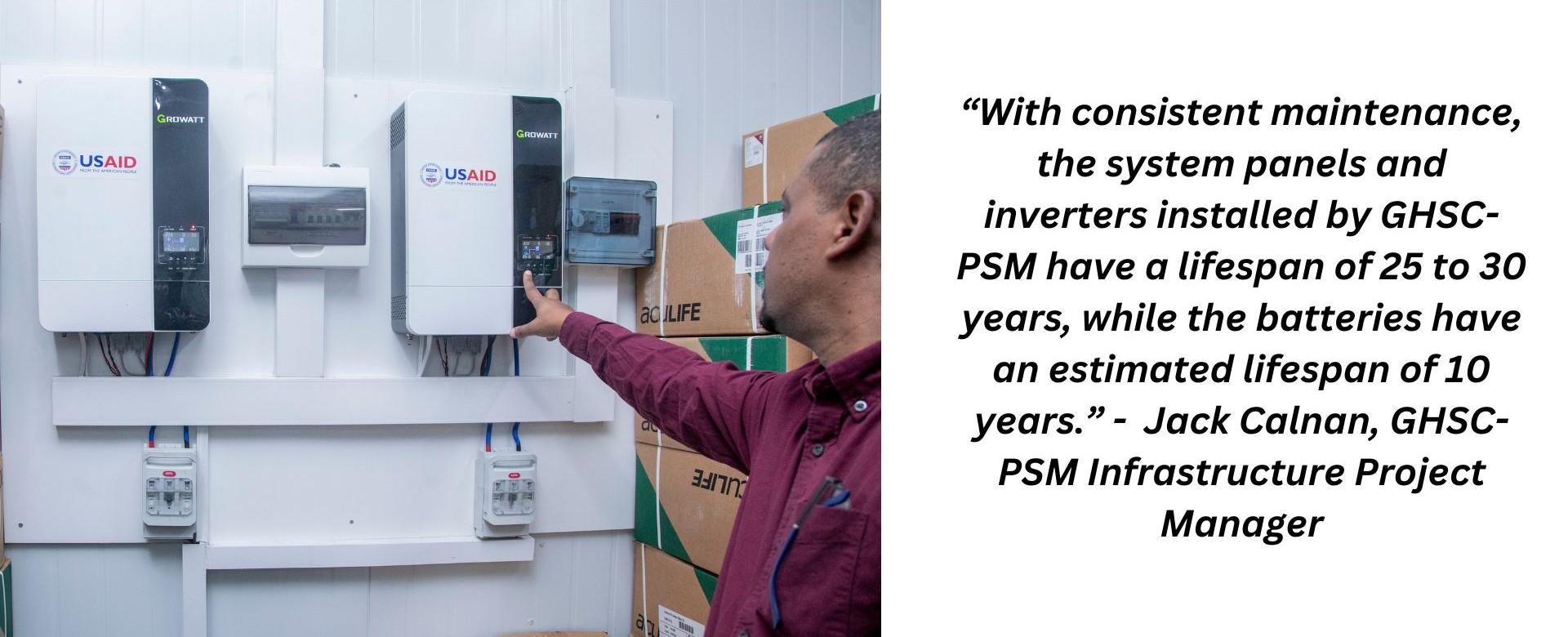
These solar solutions are a consistent, clean, and renewable energy source, reduce carbon emissions, promote environmentally sustainable practices, and overcome the challenges of regular load shedding. As the world struggles with the consequences of extreme climate events, GHSC-PSM's forward-thinking demonstrates the possibility of aligning development goals with climate action. These achievements of these endeavors highlight Zambia’s unwavering dedication to sustainable practices and their pivotal role in promoting environmental stewardship in the pursuit of global health equity.